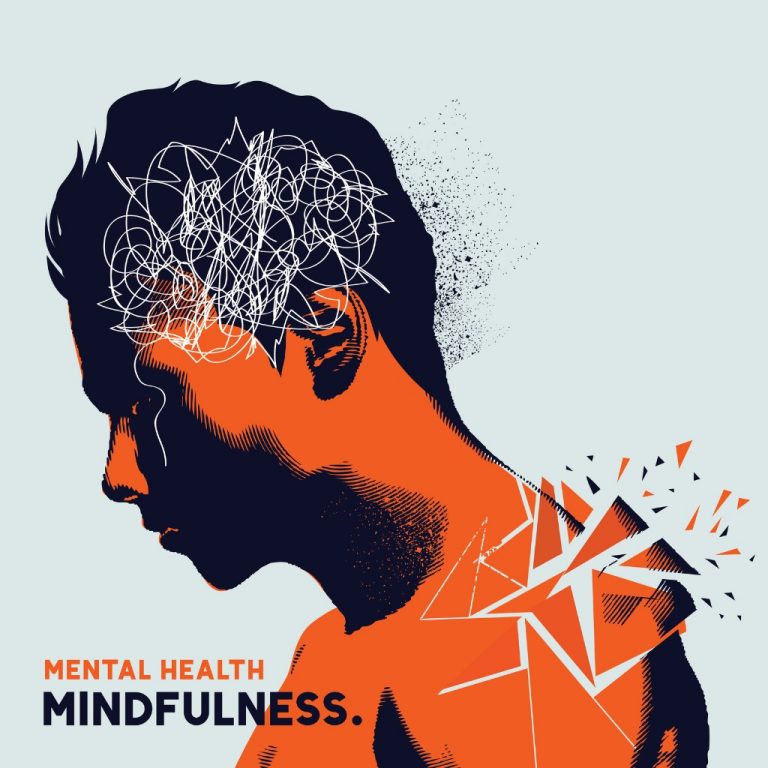Mental health crisis and Secular Mindfulness

Summary
Suicide is now the leading cause of death in British men under 40, and depression is rising among women. Adult mental health problems are experienced by 1 in 6 people at some stage during their lives in the UK. In January 2017, the Prime Minister (PM) pledged to strip away the stigma associated with mental health issues so that people feel able to talk about problems and seek help. The PM wanted to focus on preventative measures as well as treatments. The focus was to begin mental health preventative measures in classrooms and communities, in addition to the treatments in hospitals. The Queen’s speech in June 2017 confirmed that mental healthcare services in England would undergo a radical revamp of new legislation in the next two years. In July 2017, the Health Secretary said that more mental health workers are to be recruited to end the “historic imbalance” between mental and physical health services. The aim is to recruit enough nurses, therapists and consultants to treat an extra one million patients by 2020-21. Despite all these initiatives by the Government and its admission to tackle a historic lack of funding and staffing devoted to mental health, this paper argues that the Government should embrace low-cost mindfulness training as a preventative measure to supplement these clinical solutions.
What is Secular Mindfulness
There are several definitions but Mindfulness is a process of paying attention to the present moment in a non-judgmental way. In the early stages of mindfulness training, awareness of breathing is typically used to anchor, but mindfulness encompasses much more than observing the breath.
Mindfulness is our capacity to notice in the present moment with an open mind. It is a basic human capability that can be developed through training, practice and patience. Although it is not owned by any group, mindfulness can be found in many contemplative traditions. Mindfulness practice is a form of mental training that is secular and does not require a commitment to a spiritual method.
The political focus on secular mindfulness
The Mindful Nation UK is a report by the Mindfulness All-Party Parliamentary Group (MAPPG) published in October 2015. This is the first cross-party study dedicated to understanding the benefits of mindfulness. The MAPPG was impressed by the levels of both popular and scientific interest and launched an inquiry to consider the potential relevance of mindfulness to a range of urgent policy challenges facing government. They concluded that Mindfulness has a role to play in tackling our mental health crisis, although they acknowledged that there is still much research to be done. They concluded that innovation in mental health requires taking account of all stakeholders to create cost-effective treatments. MAPPG acknowledged that the current popularity of mindfulness is running ahead of the research evidence and maintained a neutral course.
MAPPG concluded in the report that:
1. MBCT (Mindfulness-Based Cognitive Therapy) should be commissioned in the NHS in line with National Institute of Clinical Excellence (NICE) guidelines for people with high risk of recurrent depression.
2. Funding should be allocated to train 100 MBCT teachers a year for the next five years.
3. MBCT should be offered to patients with a long-term physical health condition and a history of recurrent depression, especially those who do not want to take antidepressant medication. This will require assessment of mental health needs within physical health care services, and appropriate referral pathways being in place.
4. NICE should review the evidence for Mindfulness-Based Interventions (MBIs) in the treatment of irritable bowel syndrome, cancer and chronic pain when revising their treatment guidelines.
In 2016, MAPPG followed-up with a toolkit to develop a business case and implement mindfulness training in the workplace. They concluded that four areas of impact with the business world were financial, human, mental capital and social.
Clinical Research
The subject of mindfulness has been subject to empirical investigations since the early 60s, and there has been thousands of scientific papers published since 2010 alone. It is argued that evidence of the use of mindfulness training is most convincing for its treatment of stress, depression and anxiety, but its benefits go far beyond. Research papers in medical journals show a need to examine important methodological and operational issues concerning its efficacy. Similarly, some argue that better evidence is needed before introducing it as Government Policy.
Implementation challenges to the Government on secular mindfulness training
Despite this popularity the Government’s commitment to mindfulness training has been fairly muted. The corporate sector on the other hand has embraced these concepts from MAPPG and some training in organisations is now world class. Some low-cost solutions available to the Government are:
1. More resources for teaching-led programmes: The Government should invest in training qualified and accredited teachers for Mindfulness-based Stress Reduction (MBSR) and Mindfulness-based Cognitive Therapy (MBCT) or develop a partnership with accredited training providers. These training programmes can take up to 10 weeks in bite-sized modules. The training could be done through webinars to save costs.
2. More access to free Digital Apps: Digital programmes can be accessed at any time on any digital device, typically on smart phones. They may consist of self-paced digital programmes or an on-demand app. Programmes and apps are typically purchased direct from the supplier and Government, through the NHS, can subsidise these costs. This has the advantage of providing scalable and self-paced learning. The popular apps include Headspace, Calm: Meditation, The Mindfulness App, Mindfulness Daily and Memorado Brain Training Games. All these indicate there is an appetite nationally to explore this technique to improve psychiatric stressors.
It must be stressed that mindfulness is not a panacea to solve our mental health crisis, but a highly useful and cost effective method to help ameliorate day-to-day stressors and provide a useful coping strategy for everyone.
